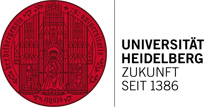Three New Research Training Groups
Heidelberg University now offers doctoral students of religious studies, biosciences and astrophysics three new research training groups and associated scholarships. The new groups investigate the subjects ‘Global religious history from a regional perspective: historicisation and decentralisation of religious identities in the 19th and early 20th centuries’, ‘Evolutionary innovation and adaptation – from molecules to organisms’ and ‘Astrophysics of cosmological objects for an investigation of gravitational theories on very large scales’. Each of these groups will receive approx. 240,000 EUR in funding over a period of 3 years from the Baden-Württemberg government fund for PhD students; the funding will be used to finance up to six doctoral scholarships. An additional 5,000 EUR per year will be made available for infrastructure measures such as conferences or continuing education programmes.
The research training group ‘Astrophysics of cosmological objects for an investigation of gravitational theories’, which is housed in the Centre for Astronomy, focuses on the properties of gravitation on very large scales that may reveal discrepancies with the general theory of relativity. Through the application of analytical methods, computer simulations and statistics, the students will investigate the influence of fundamental gravitational theories on cosmic structures such as galaxy clusters and filaments, in which gravitation competes with astrophysical processes and limits experimental approaches. The Speaker of the research training group is Prof. Dr Björn Malte Schäfer of the Centre for Astronomy.
The research training group ‘Global religious history from a regional perspective: historicisation and decentralisation of religious identities in the 19th and early 20th century’ explores the evolution of modern concepts of religion. ‘We want to place special emphasis on the reciprocity and multipolarity of the discursive, socio-political and material exchange between Western and non-Western actors. Through complex patterns of dialogue and conflict, appropriation and resistance, this exchange led to the formation of distinct religions such as Hinduism and Buddhism’, explains the Speaker of the group Prof. Dr Michael Bergunder of the Department of Theology.
The effects of the continuous process by which the genetic blueprint of organisms adapts and evolves is the subject of the research training group ‘Evolutionary innovation and adaptation – from molecules to organisms’. This process extends from currently observable variations back to the development of stem groups hundreds of millions of years ago. ‘We want to bring together existing sub-disciplines of the evolutionary sciences and unite them coherently in research and teaching. One of our goals is to combine field research in desert caves, coral reefs and alpine systems with current lines of research in genome, molecular, cell and developmental biology’, says Speaker Dr Steffen Lemke of Heidelberg University's Centre for Organismal Studies (COS), which houses the new research training group.
The new research training groups are part of the university's initiative to increase the number of structured PhD programmes, an undertaking that has been financed since 2006 with the help of the Baden-Württemberg government fund for doctoral students. With their transparent supervision and assessment structures, structured PhD programmes contribute greatly to improving research and working conditions for doctoral students at Heidelberg University. In addition, the Graduate Academy offers a wide range of information and continuing education programmes, as well as services for teachers and junior researchers in PhD programmes.

